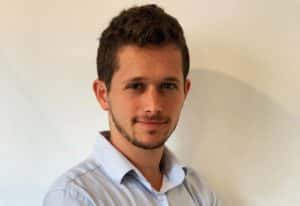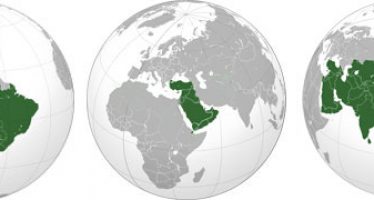Aviv Wolff: Moo-ve Over, Bessie, There’s a New Dairy on the Scene…

Remilk CEO and co-founder: Aviv Wolff
Israeli food-tech start-up Remilk is challenging a global industry valued at around $900bn.
According to Remilk’s founder and CEO, Aviv Wolff, the dairy industry has seen little innovation over the past 10,000 years. Half of all habitable land is used for agricultural production, and over three quarters of that is used for raising and feeding livestock. “It’s known to be highly inefficient in terms of greenhouse gas emissions and resource usage,” he observes.
Wolff and his Remilk co-founder and CTO, biochemist Ori Cohavi, believe they have cracked the code for a new generation of dairy. Remilk has developed a microbe-based production method that’s outperforming traditional practices — and using a fraction of the land and water.
“We’re making dairy products that are identical to cow-milk products, with the same taste, texture, stretchiness, meltiness, with no cholesterol and no lactose,” Wolff told The Times of Israel. “We’ve basically ported the whole mechanism of producing milk into a single-cell microbe. We don’t need the ‘rest of the cow’ — and we surely don’t need to spend resources in the process of creating a 900-kilogram animal.”
Wolff differentiates Remilk from the host of plant-based milk alternatives encroaching on the traditional market — which he says are “nearly 97 percent water”.
“The world needs sustainable foods for so many reasons, but if we want people to eat sustainable food, it needs to taste damn good — and that’s what we’re doing at Remilk.”
The Remilk team isolated the gene responsible for the production of milk protein in cows and inserted it into the yeast used by brewers and bakers. “The gene acts like a manual, instructing the yeast how to produce our protein in a highly efficient way.
“We then place the yeast in fermenters where it multiplies rapidly and produces real milk proteins, identical to those that cows produce, which are the key building blocks of the traditional dairy we know and love.”
Fermentation produces protein powder that can be mixed with water, oil and sugar to create a range of products. Unlike plant-based alternatives, Remilk is “chemically identical” to bovine dairy products. It has the same functional properties and can be used for cooking. Double-blind tastings have shown Remilk to be indistinguishable from old-fashioned dairy.
Remilk is headquartered in Tel Aviv, where glass-walled labs and corporate offices underscore the company’s commitment to transparency. The start-up won’t share its secret formula, but likens the process to a high-precision and tech-enhanced form of cheesemaking.
The company has production facilities in Europe and the US — and brand partnerships in the pipeline. Expansion is in full swing, fuelled by a $120m Series-B funding in January. The round was led by Hanaco, a venture capitalist fund manager based in New York and Tel Aviv. It was the single largest investment in a cow-free dairy company to date, and the value of the start-up has since surged.
“This funding propels us on our journey to transform the dairy category into one that delivers delicious, nutritious products without harm to people, planet or animals.”
Remilk, founded in 2019, will break ground on a manufacturing plant in Denmark before the end of the year. It will be the largest facility of its kind, roughly the size of nine football pitches and with an annual production capacity equal to 50,000 cows. The site will enable Remilk to scale commercialisation, bringing animal-free dairy to the masses without price-gouging.
“We want to be more affordable, because essentially what we’re trying to do is to eliminate the economic incentive from using cows in our food system,” Wolff says. “Ending animals’ historic role as providers of food for humankind is one of the most powerful measures we can take to reduce our impact on our planet.”
You may have an interest in also reading…
Q&A with Michael Glinski, CEO of Porsche Schweiz: Alternative Fuels, an Unbroken Legacy, and a Sports Car’s Place in the Modern World
Porsche: it’s always been a ‘dream’ car. But what does the future hold for the famous marque in the years
2012 CFI Top 100 Emerging Markets Companies’ Nominations
The 2011 CFI Top 100 Emerging Market Companies were compiled by using the nominations and the votes from CFI’s subscriber
Tobias Preis: Beating the Stock Market with Google’s Big Data
Google your way to riches: It can be done and Tobias Preis has proved it. Search query data on publically

















































































